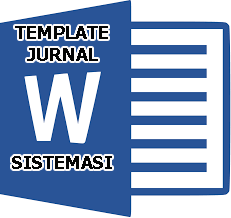Publication Ethics & Publication Malpractice Statement
SISTEMASI is a reviewed journal published by the department of Information System, Faculty of Engineering and Computer Science Universitas Islam Indragiri. This statement describes the ethical behavior of all parties involved in the process of publishing an article in this journal, including publisher, editors, reviewers and authors.
Publishers' responsibilities
Ethical Guidelines for Journal Publication
Department of Information System, Faculty of Engineering and Computer Science, Universitas Islam Indragiri as the publisher of SISTEMASI takes the task of maintaining all stages of publishing very seriously and we realize our ethics and other responsibilities. We are committed to ensuring that publishing is in accordance with the joint decision of the Journal's editorial gods.
Editors' responsibilities
Publication Decision
The editor of SISTEMASI is responsible for deciding which submitted articles should be published. The validation of such work and its importance to researchers and readers should always drive those decisions. Editors can be guided by the policies of the journal's editorial board and limited by applicable legal provisions, such as defamation, copyright infringement and plagiarism. Editors may confer with other editors or peer reviewers in making this decision.
Justice & Confidentiality Aspects
Editors at all times evaluate manuscripts for authors' intellectual content regardless of the race, gender, sexual orientation, religious beliefs, ethnicity, nationality, or political views of the authors. The Editor and each section of the Editor shall not disclose any information about the submitted manuscript to anyone other than the author, reviewers, other appropriate editorial boards, and publishers, as appropriate.
Disclosure and Conflict of Interest
Material that is not published in a submitted manuscript should not be used in the editor's own research without the written consent of the author.
Reviewer's responsibilities
Contribution to Editorial Decisions Reviewers assist editors in making editorial decisions and can assist authors in improving the quality of manuscripts through editors.
Speed and Confidentiality
Any selected reviewer who feels unqualified/interested in reviewing the manuscript or does not have enough time to review should immediately notify the editor and withdraw from the review process. Any manuscript accepted for review should be treated as a confidential document. Manuscripts should not be disseminated or discussed with others unless authorized by the editor.
Objectivity Standards
The review should be conducted objectively. Personal criticism from the author is inappropriate to convey. Reviewers should state their views clearly with supporting arguments. Reviewers should identify relevant published works that have not been cited by the author. A statement that observations, derivations, or arguments have been previously reported must be accompanied by relevant citations. The reviewer must also declare to the editor if there are similarities.
Disclosure and Conflict of Interest
Information or ideas obtained in the review process must be kept confidential and not used for personal gain. Reviewers should reject manuscripts where they have a conflict of interest due to competition, collaboration, or other relationships and connections with one of the authors, companies, or institutions related to the manuscript.
Author's Duties
Reporting Standards
Authors of original research reports must present an accurate account of the work performed that is appropriate to the focus and scope of the research. The underlying data must be accurately included in the manuscript. A manuscript should contain sufficient detail and references to allow others to replicate the work. Fraudulent reporting or deliberate provision of inaccurate information is unethical and unacceptable behavior.
Originality and Plagiarism
Authors must ensure that they have written a completely original piece of work, and if the author has used the work and/or words of others, then these have been cited appropriately.
Multiple, Redundant and Concurrent Publication
An author should not publish a manuscript outlining the essence of the same research in more than one journal or major publication. Submitting the same manuscript to more than one journal simultaneously is unethical and unacceptable publishing behavior. Proper acknowledgement of the work of others should always be given. Authors should cite publications that have been influential in determining the work they are reporting.
List of Manuscript Authors
Authors should be limited to those who have made a significant contribution to the conception, design, conduct, or interpretation of the reported research. All persons who have made significant contributions should be listed as co-authors. Other persons or parties who have participated in certain substantive aspects of the research project, they should be recognized or listed as contributors. Correspondence authors should ensure that all appropriate authors are listed in the manuscript and that there are no inappropriate authors, and that all authors have seen and approved the final version of the paper and have agreed to its submission for publication.
Disclosure and Conflict of Interest
All authors must disclose in their manuscript any conflicts of interest either substantive or financial that might be construed to influence the outcome or interpretation of their manuscript. All sources of financial support for the project must be disclosed.
Fundamental Errors in Published Work
When an author discovers significant errors or inaccuracies in his or her published work, it is the author's obligation to immediately notify the journal editor or publisher and cooperate with the editor to retract or correct the manuscript.










